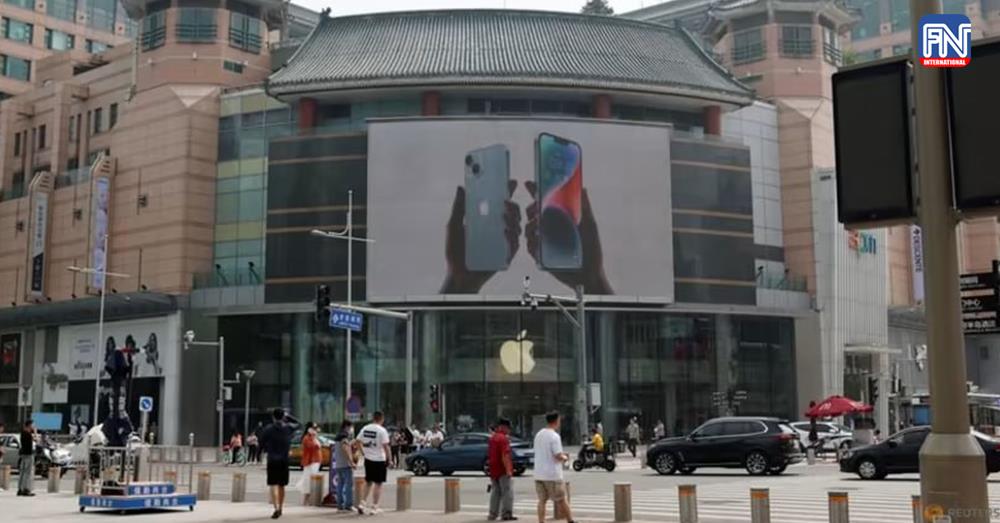BEIJING, Sep 7 (Reuters) - China has in recent weeks widened existing curbs on the use of iPhones by state employees, telling staff at some central government agencies to stop using their Apple mobiles at work, two sources familiar with the matter said.
Against a backdrop of tensions between Beijing and Washington, the extension of a ban imposed more than two years ago signals growing challenges for the US company, which relies heavily on China for revenue growth and manufacturing.
Staff in at least three ministries and government bodies were told not to use iPhones at work, said the sources, who declined to be named due to the sensitivity of the situation.
One of the sources said they had not yet been given a deadline to cease their iPhone use.
Apple and China's State Council Information Office, which handles media queries on behalf of the government, did not immediately respond to requests for comment.
It was not immediately clear how widely the ban was being enforced, with a third source at one of the three ministries saying he was still using an iPhone and had not yet heard about the restriction.
A fourth source, at a Chinese regulatory body, said they had not been explicitly barred but were told they would be held responsible should any issues emerge with their use of iPhones.
A fifth source at another regulatory body said senior staff had two years ago already been required to swap their iPhones for locally made brands such as Huawei Technologies.
In 2020, state-owned Chinese financial publication Economic Observer reported that some government agencies had implemented rules to ban officials from using iPhone due to Apple's strict privacy rules that make it difficult for anti-corruption officials to access and investigate suspects' phones.
Apple's shares slipped on Wednesday and Thursday after the Wall Street Journal first reported the move, amid fears of tit-for-tat action as Sino-US tension rise.
Bloomberg on Thursday reported that China planned to broaden the ban to state firms and agencies, citing sources.
